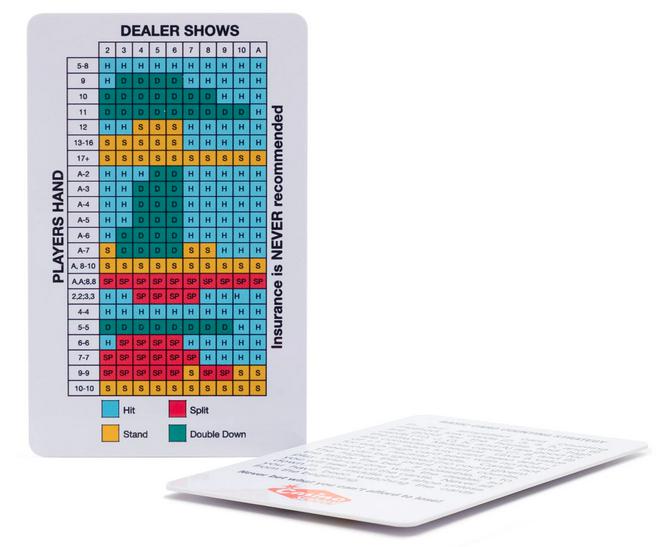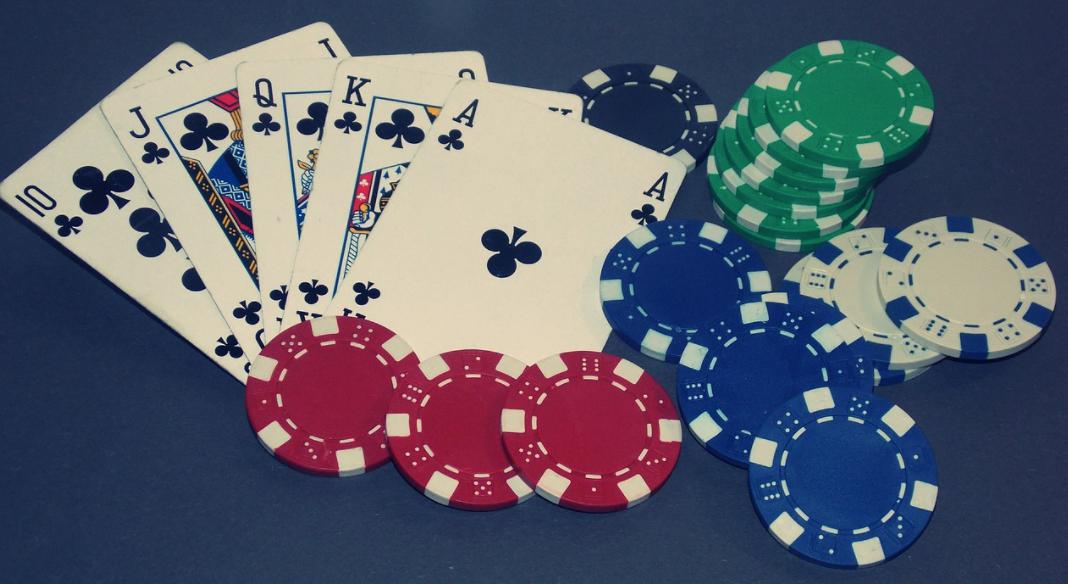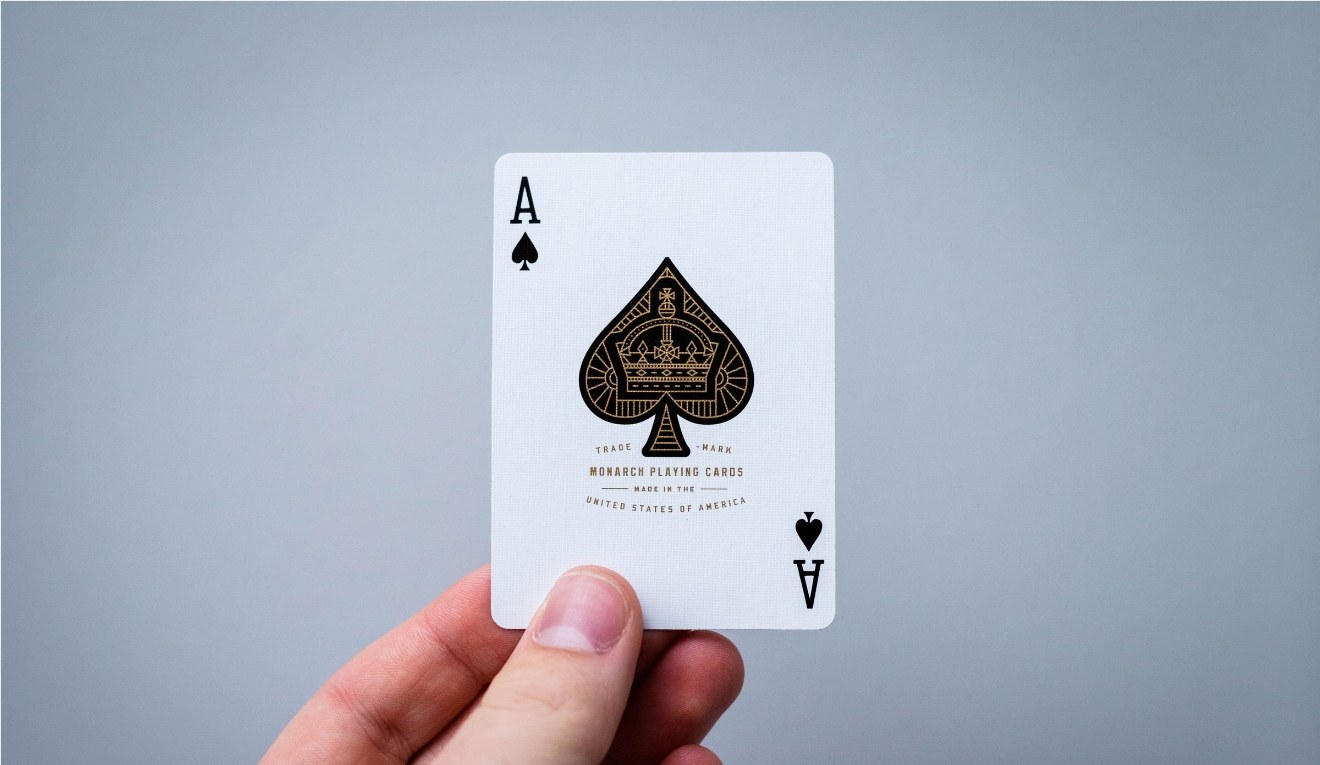Learn more about the world's most infamous casino hacking gadgets. From slots sliders and remotes, to roulette computers and dice rolling devices. Cheaters have upped the ante with card counting apps and poker analysers.
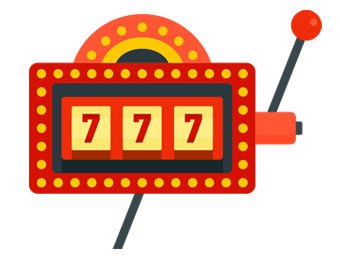
Slots Slider Device
A guitar or piano string attached to a bent metal rod. You would strategically (and sneakily) attempt to feed it through the payout chute of a slot machine. Also referred to as a ‘monkey paw’, its hook-like shape would trigger the microswitch for the coin hopper.
How it Works
The Slots Slider was essentially a guitar or piano string attached to a bent metal rod. You would strategically (and sneakily) attempt to feed it through the payout chute of a slot machine. Also referred to as a ‘monkey paw’, its hook-like shape would trigger the microswitch for the coin hopper. After quickly removing the device, an avalanche of coins would ensue… As slot machines became more sophisticated, so too did Carmichael’s inventions. He would later go on to invent the Light Wand. This device uses a mini camera battery and light bulb to blind a slot’s sensor, tricking it into releasing a jackpot.
The Biggest Hacks
Back in 1982, a group of brazen crooks worked together at the Caesars Boardwalk Regency Casino in Atlantic City. They attached a 20-inch long Slots Slider deep into the mechanism of a targeted slot machine. You can imagine how suspicious this must have looked! The device allowed them to trigger the microswitch into releasing $50,000. Unfortunately for them, the entire incident had been caught on camera. The ‘winning’ player was arrested before he even left the premises.
Spanning over four decades, Tommy Glenn Carmichael himself stole millions of dollars from Las Vegas casinos. In 2001, he was finally caught by an FBI investigator. He was sentenced to 326 days in prison and three years' probation. Carmichael was also banned from entering casinos ever again.
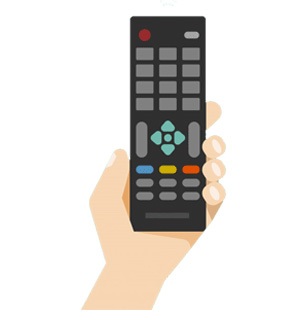
Slot Machine Remote
Sends a fake coin-counting signal when a button is pressed. The Jackpotter device tricks the slot machine into thinking that no coins have dropped. It would be used when a player has won and coins are already dropping, exponentially extending the winning period.
How it Works
Fake coins, produced in bulk, look and feel very similar to real casino chips, but have no intrinsic value. They essentially trick the slot machine into thinking that they’re real money. While this costs the player very little (or nothing), it can be quite a time-consuming activity – as it still requires the player having to win.
A Slot Machine Remote, or ‘Jackpotter’, send a fake coin-counting signal when a button is pressed. Due to its small size (easy to hide) and simplicity, it is becoming increasingly popular with cheaters. The Jackpotter device tricks the slot machine into thinking that no coins have dropped. It would be used when a player has won and coins are already dropping, exponentially extending the winning period.
The Biggest Hack
Louis Colavecchio, also known as ‘the Coin’, was an infamous counterfeiter (they’ve even made a documentary about him). He led a gang that produced fake coins using hardened steel dies of the originals. Throughout the decades, he cheated American slot-machines out of thousands of dollars.
In 1997, he was discovered with 750 pounds of fake coins in his car in Atlantic City. Can you imagine that? The following year, he was convicted and sentenced to 27 months in federal prison for possessing and manufacturing the coins. At the age of 76, Colavecchio was arrested again in Pawtucket, Rhode Island, for counterfeiting 2,400 fake $100 bills. This guy just doesn’t seem to learn a lesson!
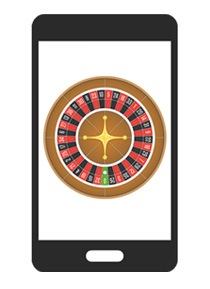
Roulette Computers / Apps
Small electronic devices that predict where the ball will land. They use lasers to scan the table, spinning of the current round and sometimes the events of previous games. It calculates the speed and deceleration of the ball and wheel to determine the estimated winning segment.
How it Works
Roulette Computers are small electronic devices that predict where the ball will land. They use lasers to scan the table. They also scan the spinning of the current round and sometimes the events of previous games. They calculate the speed and deceleration of the ball and wheel to determine the estimated winning segment. While they are by far the simplest way to beat roulette, they are notoriously inaccurate, only able to make broad approximations. For example, they predict the general area as opposed to winning numbers.
Most Roulette Computers only work on old and worn out wheels. Very few achieve high levels of precision on modern roulette wheels. However, the technology has improved and is now available on mobile devices in the form of Apps. This also allows them to be more easily hidden and operated.
The Biggest Hack
In 2004, a high-tech roulette scam saw three people leave the Ritz Club Casino in London with £1.3 million in winnings. After suspicious casino staff reviewed videotape footage of the players, they called in the police to investigate. Witnesses claimed that the cheaters used mobile phones fitted with laser scanners to measure the speed of the roulette ball in order to calculate where it was expected to fall.
After raking in huge winnings over two evenings, the casino is believed to have paid the group £300,000 in cash and written out a cheque for the remainder. Shortly thereafter, Scotland Yard arrested them at their hotel, where they seized a "significant quantity of cash", as well as several mobile phones.
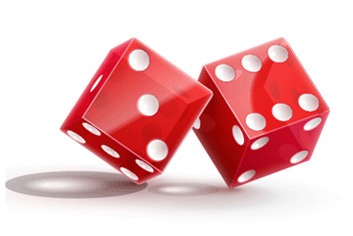
Dice Rolling Devices
Swapping out the casino dice for your own home-tampered version. 'Scrambled Dice' are drilled down with added lead weights that allow for one side to be heavier than the other. This way, a consistent roll is always achieved.
How it Works
Dice control refers to throwing the dice in a very controlled manner in order to produce a similar outcome each time. For advanced players, this has become somewhat of a science. In games like Craps, they set the dice on an axis and gently roll or slide them down the table (much like a geometry problem).
Cheaters can take it one step further with a host of dice rolling devices. A popular method is to swap out the casino dice for your own home-tampered versions. ‘Scrambled Dice’ is drilled down with added lead weights that allow for one side to be heavier than the other. This way, a consistent roll is always achieved.
The Biggest Hacker (or is he?)
Dominic LoRiggio, the “Dice Dominator”, was able to use controlled throwing to his advantage. He held the dice in a special way clenched in his fist and understood how they travelled through the air. He also threw them in what appeared to be a normal manner, so was often underestimated. While it took many years of practice to perfect, LoRiggio was able to consistently win at the Craps table. In fact, he managed to win big sums at almost every major casino in the US and Europe, amassing a net worth of millions.
While many would consider what LoRiggio did to be ‘advantage play’, it’s not technically considered cheating (as there is a certain intangible skill involved). However, some casinos may make players shoot the dice in a different way if they suspect controlled dice rolling.
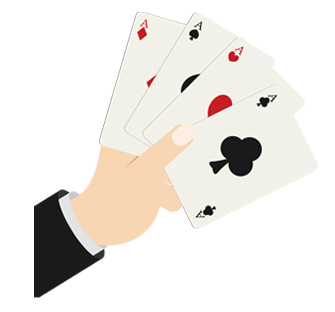
Card Holdout Device
A homemade apparatus that is strapped to your arm (hidden under your sleeve or coat). It provides you with alternative playing cards to produce winning hands in baccarat, poker, and any other applicable card game.
How it Works
A Card Hold Out device is a homemade apparatus that is strapped to your arm (hidden under your sleeve or coat). It provides you with alternative playing cards to produce winning hands in baccarat, poker, and any other applicable card game. Some holdout devices are extremely simple. But most require moderate to advanced manipulative skills in order to be used properly.
The most infamous iteration was developed by P.J. Kepplinger in the 1880s. The device’s aim was to temporarily hold a card out of the game so that the player could retrieve it at a later time. By having even one card out of play, it dramatically increases the odds of the cheater, effectively being dealt with a ‘bonus card’ on every round.
The Biggest Hack
In 2011, two South Korean Nationals plead guilty to one count of conspiracy to commit wire fraud and theft from an Indian casino. Young Su Gy and Wookyung Kim allegedly used a Card Hold Out device to switch cards multiple times in games of Macau-style Baccarat. Gy wore the device and played, while Kim distracted casino employees.
They reportedly fleeced the Foxwoods Resort Casino in Connecticut out of between $400,000 and $1 million over a three-month period. After the suspicious movement of their winnings, the pair were arrested and ultimately convicted of their crimes. They each face a maximum sentence of up to 20 years in prison. Talk about being dealt a bad hand!
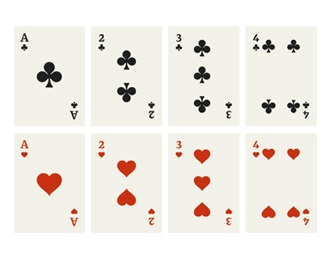
Card Counting Apps
An app that lets players know when the advantage shifts in their favour. This is done by noting which cards were dealt in the early rounds and keeping track of the ratio of high to low undealt cards. To assess this, tags are assigned to each card.
How it Works
Card counting is a technique that allows blackjack players to know when the advantage shifts in their favour (and place their bets accordingly). This is done by noting which cards were dealt in the early rounds and keeping track of the ratio of high to low undealt cards. To assess when undealt cards have more high values (favouring the player) or low values (favouring the dealer), card counters assign a tag to each card. They must then carefully watch every card that is played and physically add the tags for each card. So, it is essentially a mathematical problem to be solved.
Due to it being a highly complex task (with no aids or accessory devices), it is not technically considered cheating. However, in recent times, various apparatus, computers, and Apps have been developed for this specific purpose. Using the same methodology, the same outcome can be produced with very little effort – and illegally.
The Biggest Hack
From the 1970s through to the 1990s, the MIT (Massachusetts Institute of Technology) Blackjack Team used card-counting methods to earn millions at casinos across the United States. Comprised of ex-students from MIT, Harvard, and other prestigious colleges, the group was one of the first to apply these mathematical tactics.
Over the years, the team’s leader, Bill Kaplan, taught over 100 blackjack players. Fully trained players had to pass an intense test with almost perfect play over eight rounds. They then had to undergo further coaching and supervised gameplay in actual casinos before they could become full stakes players.
Kaplan reportedly pocketed over $10 million for himself, along with additional funds for investors. Card counting is largely “frowned-upon but legal” unless accessories or assisted devices are used in the process. Eventually, casinos caught on to the MIT Blackjack Team’s elaborate scheme and barred its members from gambling. The group’s exploits were so infamous that they inspired the 2008 movie, 21.
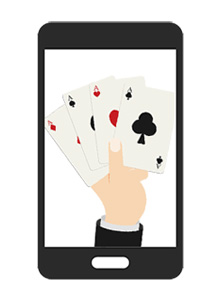
Poker Analyzer
It scans playing cards with a hidden camera to read marked cards. The sequence is read remotely by the cheating device to assume a cards suit and value. The results can be communicated via a 'phones' audio and/or vibrate mode.
How it Works
Poker Analysers are used to read marked cards (in some ways similar to the concept of X-ray glasses). In terms of exterior appearance, the device usually resembles a popular mobile phone. It scans playing cards remotely with a hidden camera embedded on one side. Three IR LEDs illuminate the deck to make the markings on the cards visible. The sequence is read remotely by the cheating device to assume a card’s suit and value. The results can be communicated via the ‘phones’ audio and/or vibrate mode.
It is a highly complex device as it has to compensate for a card’s position (angle and rotation). It also has to read a very thin surface area with a low-resolution camera from a distance of 30 cm or more. Furthermore, the reading and decoding process has to be extremely fast to allow for natural-looking gameplay.
The Biggest Hack
Stones Gambling Hall in California had to put an end to its live streaming of poker games after one of its regular players, Mike Postle, was accused of cheating. The allegations came from fellow players (24 in total), as well as the commentator, resulting in a $30 million lawsuit.
In 2019, Postle won $250,000 over 250 hours of play in a number of relatively low stakes poker games. He was accused of using a Poker Analyser device after he exhibited suspicious behaviour. He appeared to be receiving information from his mobile phone, which he habitually held concealed in his left hand. Throughout the game, he consistently made bold calls and folds that didn’t seem “right” but happened to work out in his favour. In fact, Postle, as a relative unknown, was established to have a win rate ten times higher than that of the world’s greatest poker players.
So, Why Shouldn’t You Hack?
If it hasn’t been clear, just about every hacker has been caught. Along with more sophisticated devices, casinos too have become much more stringent in their surveillance and screening processes. The punishments are harsh - 20-year prison sentences and $30 million lawsuits, just to name a few. So, think twice next time you envision the winning potential of the most infamous casino hacking gadgets.








